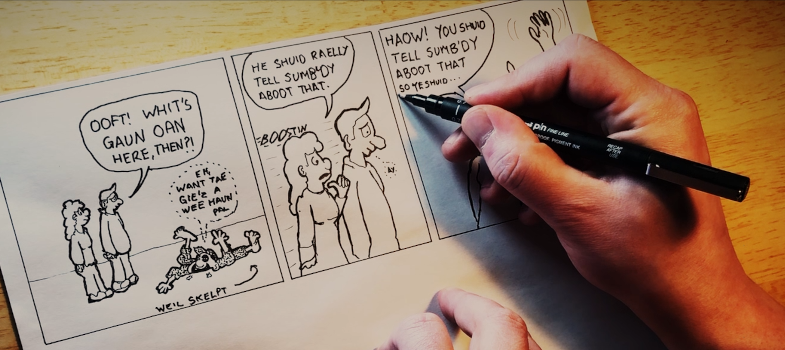Model Answer Unit 3.2 Activity 2B
This is a model answer with reference to ‘Crocodile’. You might have noted down other aspects.
Before listening to the poem, learners’ prior learning of Scots would be determined. Some learners in the class may have no Scots at all whereas others may be fluent Scots speakers. The topic could be introduced by using a starter activity, like the ‘Up and Doon’ game or ‘Heid, Shouders, Knaps and Taes’. Exposure to Scots vocabulary through interactive learning games such as ‘Pairs’ or ‘Pop’ might also be useful.
The class would listen to the poem more than once. First of all, they would listen to it in its entirety for enjoyment, then they will listen again with pauses for questions and answers to check understanding.
A series of questions, pictures (of the River Nile, of a crocodile, of a crocodile with a bird pecking at its teeth) and discussion points would be used to help the children define the Scots vocabulary – particularly the words that are unique to Scots – doukin, syne, fyke, besom, redds. Context clues would be used, and a whole-class discussion would centre around encouraging the children to the English words they know, e.g.:
What is a river? What is the speaker doing there? What happens if you go into water? What could doukin mean?
What do you use to clean your teeth? Are your teeth smaller or bigger than a crocodile’s? What might a crocodile need to brush their teeth? What could a besom be?
An activity to check understanding could then follow. This could involve ordering events within the poem, questions and answers, pair/group discussion, creating storyboards…
To help the children relate the poem to their personal experiences, the lesson would culminate in assessing the children’s understanding of the story by asking them to share experiences of their encounters with animals or insects. Have they ever seen a real crocodile? Or another animal or insect that is big and/or frightening? How did they feel? Was the crocodile in the poem scary or friendly? Was the animal they met in real life scary? Where/when possible I would encourage the class to answer these questions in Scots.
